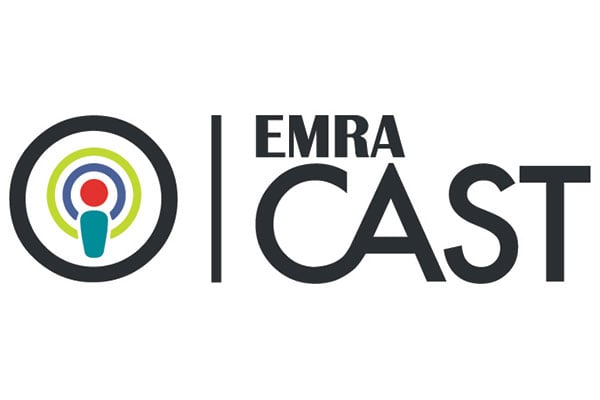EMRA Rep to the ACGME Review Committee for Emergency Medicine


Application proccess is now closed for this term.
EMRA invites our members to apply to be one of the two EMRA-slated candidates to serve on the ACGME Review Committee for Emergency Medicine.
If the ACGME selects our candidate to serve as the resident member of the Review Committee, not only will he/she participate as a full voting member of the Committee, attend and represent EM residents on all ACGME RC and ACGME Council of Review Committee Residents (CRCR) meetings, but he/she will also serve as a Member At Large of the EMRA Board of Directors.
Qualifications of the Resident Member
The resident member must have a minimum of one year of emergency medicine residency education remaining after July 1, 2027.
Resident members may not serve on two review committees simultaneously and must not be from the same state or institution as another member of the Review Committee.
Current RC Member Institutions:
- University of California (San Diego), California
- University of Southern California/LAC+USC Medical Center, California
- Denver Health/University of Colorado, Colorado
- University of Florida College of Medicine (Jacksonville), Florida
- University of Illinois Cancer Center, Illinois
- University of Louisville, Kentucky
- Johns Hopkins University, Maryland
- University of Nebraska Medical Center, Nebraska
- University at Buffalo, New York
- Columbia University, New York
- Mercy-St Elizabeth Boardman Hospital, Ohio
Responsibilities of the Resident Member
The resident member of the Review Committee participates as a full voting member in all review committee activities, including program review and policy discussion. The resident member is subject to complying with the same confidentiality, conflict of interest, duality of interest, and fiduciary responsibility policies of the other members. Resident members will sign an agreement with the ACGME and annually complete a disclosure form identifying any relationships, positions, or circumstances in which s/he is involved that s/he believes could contribute to an actual or apparent conflict or duality of interest.
Resident members must have sufficient time to prepare program review information, participate in subcommittee work (as assigned), review agenda items and related documents prior to the meeting, attend/travel to each Review Committee meeting, and participate in other activities of the Review Committee.
The resident member is also a member of the ACGME Council of Review Committee Residents (CRCR). The CRCR is composed of resident members from each Review Committee and is an important part of the ACGME as it serves to provide valuable input and feedback to the ACGME Board of Directors about matters related to residents, graduate medical education, and accreditation from the resident perspective. The CRCR meets twice a year; dates are listed at the end of this notice.
NOTE: It is the responsibility of the program director of the resident member’s residency or fellowship to ensure that the resident will have the necessary time to review programs, attend Review Committee meetings and CRCR meetings, and participate in activities of the Review Committee for Emergency Medicine and the ACGME as is required for all Review Committee members.
Selection of Next Resident Member
The Review Committee will consider nominations this fall and will forward its selection to the ACGME Board of Directors for approval at its February 2027 meeting. The new resident member’s term will begin July 1, 2027 and end June 30, 2029.
ACGME Requirements
The resident member must have a minimum of one year of emergency medicine residency education remaining after July 1, 2027.
Additional Information
All new committee members are required to participate in New Member Orientation. Dates and times will be arranged by Review Committee staff. The duration of both the Review Committee and CRCR meetings is one to three days, as needed. Members are expected to attend all meetings.
The Review Committee for Emergency Medicine meets two times per year usually in January and April, with an occasional third meeting scheduled as needed. At times, the Committee may meet via conference call according to each meeting agenda. All travel- and meeting-related expenses are covered by the ACGME.
Schedule of Meetings
Check out the list of meetings on the ACGME Website.
Selection Timeline
EMRA Nominee Submission Deadline: September 16
Two EMRA-Endorsed Candidates Selected by September 25
ACGME will notify the selected individual in February, 2023
The new resident member’s term will begin July 1, 2027, and ending June 30, 2029.
March 2027 - June 30, 2027 New RC-EM rep will shadow current RC-EM Rep
Each submitted nomination must include:
1. Two letters of recommendation
a. Letter of support from the nominee’s program director. This letter must include an attestation that he or she will ensure that the resident will have sufficient time to participate in activities of the Review Committee and the ACGME as required.
b. Letter of endorsement from a professional medical society of membership or other person/group - EMRA will supply this for the nominees.
2. Resident CV
3. Completed Nomination Form (Download below)






